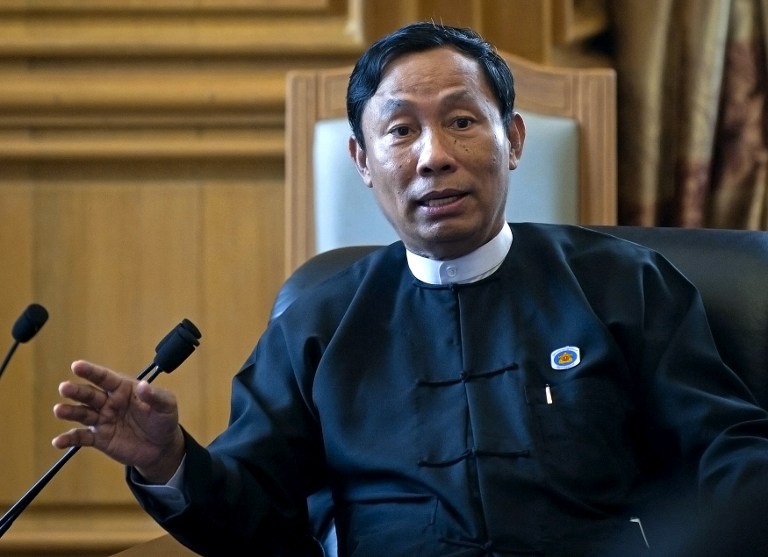A bill presented last week containing amendments to Burma’s Constitution – even if approved by parliament – will only come into effect after the upcoming elections, the Joint Bill Committee said on Wednesday.
The bill, which was drafted by the parliamentary committee and presented on 10 June, suggests easing certain constitutional articles including the controversial 436(a) and 59.
But amending the country’s charter is not as simple as a parliamentary vote. Article 436 dictates that to make changes to certain clauses, not only must three-quarters of MPs in both houses of parliament approve an amendment but that the proposed change must also be put to a national referendum. Article 436 is itself subject to debate. Under the newly proposed amendment bill, changes would still require the approval of 75 percent of all MPs, but would not require subsequent public consent.
Nan Htwe Mong, chair of the Shan Nationalities Democratic Party legal affairs committee, told DVB that parliament should go out of its way to speed up amendments.
“I think the amendments should come into effect on the same day that parliament approves them. Speaker U Shwe Mann, at a recent meeting with representatives of 20 political parties, said he is aware that the people don’t favour the 2008 constitution, therefore it must be amended.
“However, [Shwe Mann] said that there might not be enough time to amend certain clauses that need approval through public referenda because elections are drawing close now. So, he told us to propose changes to other articles [that don’t need a referendum] and promised to see what could be done about them. Now that the bill amending the Constitution is on table I think the changes should come into effect on the day the bill is approved; otherwise we cannot say the charter is amended,” she said.
Article 59 – which lays out the qualifications of anyone seeking the presidency or vice-presidency and which many critics say was tailored specifically to exclude Aung San Suu Kyi from taking either position – has also been proposed for amendment in the new bill. Recommended alterations include a wording, with a demand for knowledge of “military” affairs changed to knowledge of “defence” affairs.
The bill proposed last week would also alter Article 59 to remove the condition that a candidate for presidency or vice-presidency can not have a foreign spouse – which would do little to change the situation for Suu Kyi as the barring of a candidate with children of foreign citizenship would remain. Suu Kyi was married to the late Michael Aris, who was British, and with who she had two children who have British citizenship.
[related]
Ko Ko Gyi of the 88 Generation Peace and Open Society said that due to time constraints those amendments requiring a public referendum are likely to be temporarily shelved.
“We also need to wait and see which amendments on which articles in the new bill will be approved. As the campaign period for the elections is due to start, I think the charter amendments can only be implemented when the next parliament convenes. I think that parliament will see what it can do about those articles that can be amended without a referendum during its term, and leave the rest for the new parliament,” he said.
Public support for constitutional amendment is strong, according to Burma’s main opposition party. Last year, the National League for Democracy (NLD) announced that it had conducted a petition in more than 300 townships across the country, and had collected 4,953,093 signatures. At the time, spokesperson Han Thar Myint said the petition represented not only NLD supporters but people from all sectors.
Lawyer Aung Thein argued that some public involvement in the process must be included.
“It is true that the Constitution should be amended in parliament, but the question is, are we the people not allowed to suggest changes too? Previously a petition calling for charter amendments with over five million signatures from members of the public was presented to parliament, and I think that by suggesting that these signatures are illegitimate, parliament may be dismissing public opinion,” he said.



